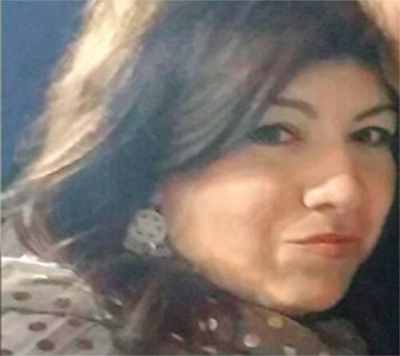Justice for All

New JACSW Specialization Combines Clinical Practice and Policy Reform with the Study of Theories of Crime and Delinquency
There are more than 11,000 criminal justice social workers currently employed in the United States, according to online career services company Zippia. That number will soon increase as the Jane Addams College of Social Work (JACSW) has begun a new specialization program in the master’s degree curriculum.
The Social Work within Justice Systems (SWJS) specialization allows students to explore relevant aspects of clinical practice and study theories of crime and delinquency. Analyzing justice system policies and reform efforts – particularly how to be involved in transforming a juvenile/criminal justice system of control and oppression into one of healing and restorative justice – is also an essential aspect of the coursework, said Associate Professor Charles Hounmenou, PhD, the SWJS committee chair.
Students are required to complete four semester-long courses in three areas: Policy, Practice and Research. In Policy II – Juvenile and Criminal Justice Policy, students will develop and enhance their understanding of policies relating to policing, sentencing, conditions of confinement, community reentry, and gender responsiveness within both justice systems in the specialization’s juvenile and criminal justice policy course. Social Work Micro Practice in the Justice Systems (Practice III) builds on the generalist curriculum and uses a trauma-informed, culturally grounded and strengths-based approach in practice with vulnerable, disenfranchised, oppressed, and at-risk individuals, families and groups engaged in both the juvenile and/or criminal justice systems.
Practice IV: The Social Work Macro Practice in the Justice Systems curriculum addresses positive social change related to the juvenile and criminal justice systems. Students will apply a civil and human rights perspective along with a framework that integrates practice and collaboration with organizations and communities fighting on behalf of justice system-involved individuals.
Through the Juvenile and Criminal Justice Research course (Research II), students will gain and expand their knowledge on the different components of the research process in the context of the justice systems. It will provide students with knowledge of criminal justice research, as well as an understanding of the ethical issues in the process of research related to crime.
Elective courses, such as Community Violence; Crises Intervention; Drug and Alcohol Abuse; Human Trafficking; and Social Work with Women, are available to students in the two-year program. And learning is not restricted to the classroom. Students must also complete a field placement within the community.
Xochitl Guerrero, a licensed social worker and doctoral candidate at the JACSW who is a full-time faculty member at a Chicago-area university, felt like the opportunity to educate students on information she was passionate about was too great an opportunity to ignore. Working as a mental health specialist and medical social worker at the Cook County Department of Corrections has provided her with a plethora of justice system practice experience that serves to instruct students within the specialization.
quote Heading link
My experiences at the Cook County Department of Corrections have impacted everything I do, how I interact with others, and my view of the world.
Article continues Heading link

“My experiences at the Cook County Department of Corrections have impacted everything I do, how I interact with others, and my view of the world,” Guerrero said. “All of this has a direct impact on how I teach and how I deliver the course. I remain indebted to the thousands of incarcerated individuals who have entrusted me with their stories and experiences because I now use those stories (anonymously, of course) to teach students how best to provide services to individuals who are directly impacted by the criminal legal system.”
Social workers, particularly those who have specialized education and experience working in the criminal legal system, are an asset, as they can advocate for both survivors and perpetrators of crime, said Guerrero, an adjunct lecturer at the JACSW.
“Social workers absolutely need to be present in these settings,” she said. “As I tell my students, ‘Imagine if we were not in these spaces. Who would be advocating for justice the way we do?’ We have an ethical obligation to show up in these settings and lift up the voices of those who are too often silenced.”
Having spent more than 20 years working in the social service sector, Danielle Fultz has returned to school to earn a master’s degree in social work, and eagerly enrolled in the program.
“My favorite aspect is how we are being molded and taught to help change the culture in the criminal justice system,” said Fultz, a case manager at Lumity, a not-for-profit workforce development program for adults between the ages of 17 and 24 that has a pre-apprenticeship construction program. “The program is equipping us with the information we need to be the difference.”
Fultz is completing her field placement at Lawndale Christian Legal Center, selecting the organization because it supports youth through a holistic community support approach to keep them out of prison.
Quote Heading link
My favorite aspect is how we are being molded and taught to help change the culture in the criminal justice system
Article continues Heading link
“My career has provided me with the opportunity to work with individuals with substance use disorders, mental health disorders, those who have been incarcerated and individuals connected to the criminal justice system,” she said. “Many of those individuals have experienced trauma on some level and made poor decisions as a result. These are the types of people I enjoy helping, and the new specialization is allowing me to learn more to do so.”
Lucero Gonzalez was interested in pursuing a master’s degree in social work, but that was in her future, not at the present time for the May 2022 graduate of the University of Illinois Urbana-Champaign. Her sister, a therapist at Loyola University Chicago’s Wellness Center who obtained a MSW, persuaded her not to wait. The encouragement was the prompt she needed, and she enrolled at the JACSW.
“I had other opportunities but I chose Jane Addams because of the justice system specialization,” Gonzalez said. “I minored in criminology, so I was very interested in learning more about criminal justice. I honestly, truly enjoy this program. I am always eager to participate in classes, especially in my policy class. I received a double major in sociology and social work, so now I feel like everything is coming together. I love it.”
Quote Heading link
If any individual has issues, such as substance abuse or mental health, I have multiple options for them
Article continues Heading link
Like his instructor Guerrero, Michael Grela is a veteran of the department of corrections. A former officer at Stateville Correctional Center, Grela has been promoted to a parole officer at the maximum-security prison, helping formerly incarcerated individuals reintegrate into society.
“If any individual has issues, such as substance abuse or mental health, I have multiple options for them,” said Grela, who received a bachelor’s degree in social sciences while working at the Crest Hill, Ill., prison. “When individuals are seeking help because they are homeless, I know halfway houses and shelters in the area. Sometimes individuals will ask me to help them find employment. I know many employers that hire individuals with criminal backgrounds, so I have multiple options for them.”
Grela’s experience has assisted him in his coursework, yet he believes the program “has been great and much needed. I have colleagues who have master’s degrees in social work, psychology and counseling, and in my opinion, this is the best graduate program for anyone in the community corrections professions such as probation or parole.”